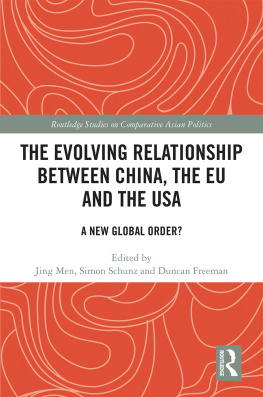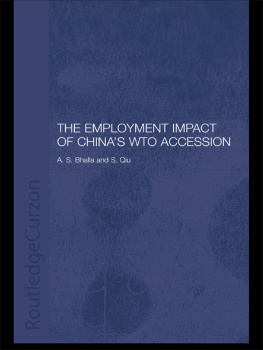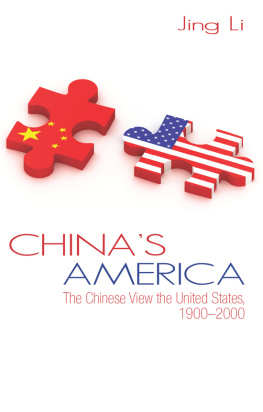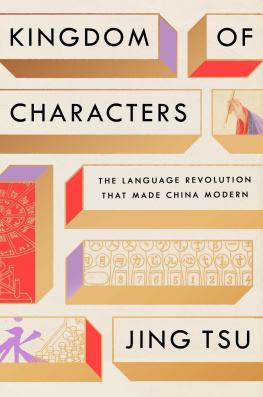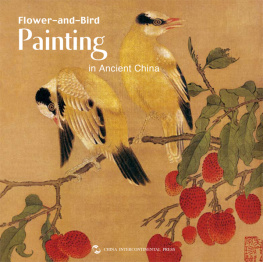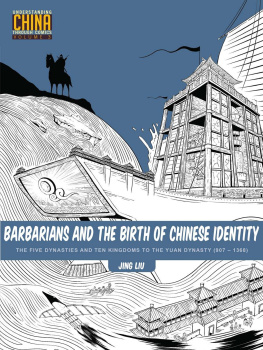
Gender and Employment in Rural China
With Chinas rapid advancements in urbanization and industrialization, there has been significant labor movement away from agriculture in the rural regions. Using four village case studies, Song examines how this restructuring process affects the rural population.
Much of her research is centered on their various perceptions and reactions towards the market reforms. How are their lives reshaped through the employment transition? Along with the changes of family life and the diversification of development models, how do an individuals gender and background play a role in determining employment? These are the broad questions that Song addresses through detailed analysis of four different villages, in light of Chinas move towards decentralization of its rural economy.
Jing Song is Assistant Professor at Gender Studies Programme, The Chinese University of Hong Kong.
Routledge Contemporary China
For a full list of titles in this series, please visit www.routledge.com
157The Occupy Movement in Hong Kong
Sustaining decentralized protest
Yongshun Cai
158The Chinese Family Today
Edited by Xu Anqi, John DeFrain, and Liu Wenrong
159Television Drama in Contemporary China
Political, social and cultural phenomena
Shenshen Cai
160Intangible Cultural Heritage in Contemporary China
The participation of local communities
Edited by Kuah Khun Eng and Liu Zhaohui
161Intellectual Discourse in Reform Era China
The debate on the spirit of the humanities in the 1990s
Giorgio Strafella
162Globalization and Welfare Restructuring in China
The authoritarianism that listens?
Huisheng Shou
163Reconfiguring Class, Gender, Ethnicity and Ethics in Chinese Internet Culture
Haomin Gong and Xin Yang
164Gender and Employment in Rural China
Jing Song
165Migration in Post-Colonial Hong Kong
Edited by Susanne Y P Choi and Eric Fong
Gender and Employment in Rural China
Jing Song
First published 2017
by Routledge
2 Park Square, Milton Park, Abingdon, Oxon OX14 4RN
and by Routledge
711 Third Avenue, New York, NY 10017
Routledge is an imprint of the Taylor & Francis Group, an informa business
2017 Jing Song
The right of Jing Song to be identified as author of this work has been asserted by her in accordance with sections 77 and 78 of the Copyright, Designs and Patents Act 1988.
All rights reserved. No part of this book may be reprinted or reproduced or utilised in any form or by any electronic, mechanical, or other means, now known or hereafter invented, including photocopying and recording, or in any information storage or retrieval system, without permission in writing from the publishers.
Trademark notice: Product or corporate names may be trademarks or registered trademarks, and are used only for identification and explanation without intent to infringe.
British Library Cataloguing-in-Publication Data
A catalogue record for this book is available from the British Library
Library of Congress Cataloging-in-Publication Data
Names: Song, Jing, 1977 author.
Title: Gender and employment in rural China / Jing Song.
Description: First Edition. | New York : Routledge, 2017. | Series:
Routledge contemporary China series | Includes bibliographical
references and index.
Identifiers: LCCN 2016050965 | ISBN 9781138915763 (hardback) |
ISBN 9781315690056 (ebook)
Subjects: LCSH: WomenEmploymentChina. | Sex roleChina. |
FamiliesChina. | Rural developmentChinaCase studies.
Classification: LCC HD6200 .S66 2017 | DDC
331.40951/091734dc23
LC record available at https://lccn.loc.gov/2016050965
ISBN: 978-1-138-91576-3 (hbk)
ISBN: 978-1-315-69005-6 (ebk)
Typeset in Gaillard
by Apex CoVantage, LLC
If Chinas urban population has recently reached 50 percent of the total, that means the other 50 percent (about 700 million people) still live in the countryside. Further, the countryside itself is urbanizing in several respects. Most important the rural economy is shifting decisively from agricultural production to other activities, creating new opportunities for residents to rethink their plans. At the same time, there is an urbanization of the settlement pattern in rural areas, with small villages growing into larger ones, villages into towns, towns into county seats. While leaving for the city often one of the far away coastal cities, remains a likely option staying in place or migrating short distances to work in a town or small city that is closer at hand is also a possibility. This means that the broad transformations of Chinese society associated with urbanization and economic development are being felt directly in the rural setting.
Jing Song offers us an inside look at how these changes are playing out in four villages. Though not a random sample, they reflect some of the important variations in rural China. Two are in coastal provinces very near to Shanghai, and they feel the influence of explosive growth in the greater Shanghai metropolitan region. The other two are described as inland, one in the interior of Hebei Province (just beyond the orbit of Beijing and Tianjin) and the other in Ningxia Province (in the suburban periphery of Yinchuan).
There is much to learn from these villages. A general question is what kinds of opportunities were created in them for peasants to transition to different kinds of work. In one case there was little potential for new local enterprises, and the main alternative to farming has continued to be labor migration. In two cases there was a general expansion of nonfarm employment but organized differently through a mix of collective industries and private ventures that gradually became more capital-intensive in one and through local enterprises originating in village collectives in another. In yet another case, the opportunities were found less in industrial jobs and more in real estate development, via monetary compensation for expropriated land and relocation housing that could generate rental income.
A central focus of this study is how men and women responded differently and jointly to these varying situations. In the socialist period women in these villages combined a homemaker role with an active participation in agricultural collectives and later in family farms. Did rising nonfarm employment change their status? Jing Song points out that men are still considerably more likely to work in nonfarm jobs, although this option has become more available to both genders. Men are also more likely to hold jobs that offer more mobility and risk and potentially higher compensation. Hence old gender inequalities have been reproduced in the period of market reform. She takes a step beyond this male vs. female dichotomy, though, with her observation that men and women coordinate their choices in what can be understood as a family economic strategy. In a changing environment there are advantages for family members to diversify into different sectors, for one person to hold multiple jobs, or for family members to cooperate in a family-based private venture. In this study we see how these choices are made through negotiation within the family, how they evolve over time, and how revised gender norms come into being.





